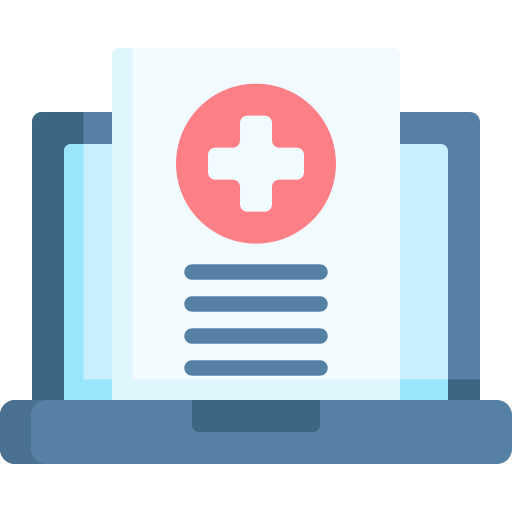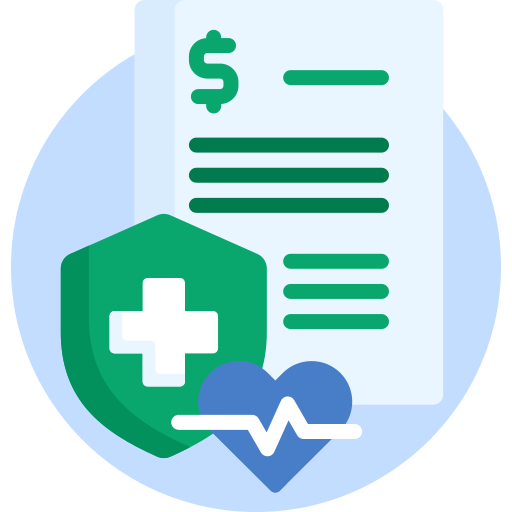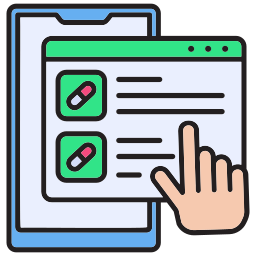An EHR is a digital version of a patient’s paper chart. EHRs are real-time, patient-centered records that make information available instantly and securely to authorized users. It contains the medical and patient’s treatment histories and is designed to go beyond standard clinical data collected in a provider’s office. EHR integration helps with this.
The global EHR market, valued at USD 32.23 billion in 2023, is projected to grow at a CAGR of 4.43% from 2024 to 2030. EHRs can also include a broader view of a patient’s care, integrating and managing various types of health information like laboratory data, imaging results, and other diagnostic reports.
Understanding EHR Integration
EHR integration involves recognizing how EHR can be interconnected with various healthcare systems to streamline information sharing and improve patient care. EHR integration is the process of linking EHR systems with other health information technologies to allow seamless data exchange. This integration ensures that patient information, such as medical histories, lab results, and imaging reports, can be accessed and updated across multiple platforms in real time, thus enhancing the efficiency and effectiveness of healthcare delivery.
The process of integration connects EHRs with other healthcare software systems, including practice management software, laboratory information systems, pharmacy systems, and billing systems. This connectivity enables healthcare providers to access and share critical patient information without manually transferring data between systems.
For example, when a physician updates a patient's EHR, the new information is automatically reflected in the lab and pharmacy systems, ensuring all healthcare professionals involved in the patient's care have the most current data. This reduces redundancy, minimizes the risk of errors, and ensures more coordinated and comprehensive patient care.
Data standards, such as HL7, play a crucial role in facilitating communication between different healthcare systems during EHR integration. HL7 provides a framework for the exchange, integration, sharing, and retrieval of electronic health information. By adhering to HL7 standards, healthcare applications can communicate effectively, ensuring that data is consistently and accurately transmitted across systems. Standardization is essential for achieving interoperability, enabling diverse healthcare systems to work together efficiently, thereby improving overall patient care and operational efficiency.
Why is EHR Integration Essential for Healthcare Data Management?
EHR integration is essential for healthcare data management as it streamlines data access, improves patient care, increases efficiency, reduces medical errors, and ensures compliance with healthcare regulations and standards. Also, the old traditional healthcare data management systems have limitations in providing quick data.

Here are some limitations of traditional healthcare data management systems:
- Fragmented Data Storage: Traditional systems often store patient data in multiple, disconnected locations, making it difficult to get a complete view of a patient's medical history.
- Manual Processes: Paper-based records require manual entry, which is time-consuming and prone to errors, potentially compromising patient safety.
- Limited Accessibility: Accessing paper records requires physical presence and can delay critical information sharing among healthcare providers.
- Inefficient Workflows: Traditional systems hinder streamlined workflows, leading to inefficiencies and reduced productivity in healthcare facilities.
- Data Inconsistencies: Inconsistent record-keeping and a lack of standardization can result in discrepancies and errors in patient information.
- Poor Data Security: Physical records are vulnerable to loss, theft, and damage, posing significant risks to patient privacy and data security.
Usage and Benefits of EHR Integration for Healthcare Data Management
EHR integration is important for modernizing healthcare data management by connecting various healthcare systems and ensuring patient information flows smoothly across different platforms. This integration improves the efficiency of healthcare delivery and enhances the quality of patient care.

By adopting EHR integration, healthcare providers can overcome the limitations of traditional data management systems and embrace a more efficient, accurate, and secure method of handling patient data.
Here are some of the benefits of EHR integration for healthcare data management:
- Streamlined Data Access: EHR integration ensures patient information can easily accessed by authorized healthcare providers, facilitating timely and informed decision-making.
- Improved Patient Care: With integrated EHRs, healthcare providers can access a complete and up-to-date view of a patient's medical history, leading to more accurate diagnoses and personalized treatment plans.
- Increased Efficiency: Automated data exchange reduces the need for manual entry and paperwork, allowing healthcare staff to focus more on patient care and less on administrative tasks.
- Enhanced Collaboration: Integrated EHRs enable better communication and coordination among healthcare teams, improving the overall management of patient care.
- Reduced Medical Errors: Consistent and accurate data sharing helps prevent medical errors by ensuring healthcare providers have the most current patient information.
- Cost Savings: EHR integration reduces redundancy and duplication of tests and procedures, leading to significant cost savings for healthcare organizations.
- Compliance with Regulations: Integrated EHR systems simplify adherence to healthcare regulations and standards, ensuring patient data is managed according to legal and ethical guidelines.
HealthConnect CoPilot’s Role in EHR Integration
HealthConnect CoPilot is a versatile platform designed to streamline the integration of EHRs with other healthcare systems. By facilitating smooth data exchange, we ensure that healthcare providers can access and manage patient information efficiently across various platforms.
Features of HealthConnect CoPilot
HealthConnect CoPilot offers several key features that make it an essential tool with EHR integration for healthcare data management. These include real-time data synchronization, user-friendly interfaces, and compatibility with multiple healthcare applications. The platform also supports secure data sharing, ensuring patient information is protected and easily accessible to authorized users.
Impact of HealthConnect with EHRs
Integrating HealthConnect CoPilot with EHR systems significantly improves the quality and efficiency of healthcare delivery. By providing real-time access to comprehensive patient data, we enhance clinical decision-making and patient care. Additionally, it streamlines workflows and reduces administrative burdens, allowing healthcare professionals to focus more on patient interactions.
Quantifying and Explaining the Cost Benefits of HealthConnect CoPilot
HealthConnect CoPilot offers substantial cost benefits for healthcare organizations. The platform helps save resources and lowers operational costs by reducing redundant tests and procedures. Furthermore, the streamlined workflows and improved data accuracy reduced the time and effort required for administrative tasks, resulting in significant labor cost savings. For decision-makers, investing in HealthConnect CoPilot enhances patient care and helps achieve a more efficient and cost-effective healthcare system.
The Impact of EHR Integration on Healthcare Delivery
💥 Improved Patient Outcomes Through a Detailed Data View
EHR integration provides healthcare providers with a thorough and accurate view of patient data for better healthcare data management. Access to comprehensive health records allows for precise diagnoses and personalized treatment plans. This detailed data view enables better monitoring of patient progress and outcomes, contributing to improved overall health.
💥 Enhanced Care Coordination and Reduced Duplication of Services
Integrating EHR systems facilitates better care coordination among healthcare providers. By accessing the shared patient information, medical teams can collaborate more effectively, ensuring consistent and continuous care. This connectivity helps eliminate redundant tests and procedures, reducing unnecessary costs and streamlining patient care.
💥 Increased Efficiency and Productivity for Healthcare Providers
EHR integration significantly boosts efficiency and productivity within healthcare facilities. By automating data exchange and minimizing manual entry, providers can focus more on direct patient care. A reduction in administrative tasks enhances operational efficiency, allowing healthcare professionals to manage their workload more effectively.
💥 Potential for Population Health Management and Research
The integration of EHR systems opens new possibilities for population health management and medical research. Aggregated data from multiple sources enables healthcare organizations to identify trends, track health outcomes, and conduct valuable research. This information is crucial for developing public health strategies and advancing medical knowledge, ultimately leading to better health outcomes on a larger scale.
Implementing Successful EHR Integration
Implementing successful EHR integration involves creating a cohesive system where electronic health records can be shared and accessed seamlessly across various healthcare platforms. Proper integration ensures that patient data is consistently available, accurate, and secure, ultimately leading to better patient care and operational efficiency.
✅ Key Considerations for Planning and Implementation
Implementing successful EHR integration requires thorough planning and a clear understanding of organizational needs. It's crucial to assess existing systems and workflows to ensure compatibility and identify any necessary modifications. Engaging stakeholders from different departments helps in understanding their specific needs and getting their buy-in, which is essential for smooth implementation. Setting realistic timelines, allocating sufficient resources, and choosing the right technology partners also play pivotal roles in the success of the integration process.
✅ Importance of Data Security and Privacy Measures
Data security and privacy are important when integrating EHR systems. Healthcare data is highly sensitive and must be protected against breaches and unauthorized access. Implementing robust security measures such as encryption, multi-factor authentication, and regular security audits is essential. Additionally, compliance with regulations like HIPAA ensures that patient information is handled according to legal standards. Educating staff about data privacy protocols and the importance of maintaining confidentiality further strengthens the security framework.
✅ Strategies for Overcoming Common Integration Challenges
Overcoming integration challenges requires a proactive approach and effective strategies. One common challenge is data inconsistency across different systems, which can be addressed by establishing standard data formats and protocols. Another issue is resistance to change from staff, which can be mitigated through comprehensive training and demonstrating the benefits of the new system. Technical glitches can be minimized by thorough testing before full-scale implementation and having a dedicated support team to troubleshoot issues promptly. Maintaining open communication with all stakeholders throughout the process ensures that any problems are quickly identified and resolved.
How HealthConnect CoPilot Can Help You with EHR Integration?
HealthConnect CoPilot provides straightforward solutions for integrating EHR systems for healthcare data management, designed to fit the specific needs of healthcare organizations. Our team brings expertise in current healthcare technologies and a solid grasp of industry standards to the table. We start by assessing your system, planning strategically, and working closely with stakeholders to make sure everything fits together smoothly with your existing workflows and applications.
When it comes to data security and privacy, HealthConnect CoPilot takes no shortcuts. We use strong security measures, like encryption and multi-factor authentication, to keep patient information safe. Our commitment to following healthcare regulations, including HIPAA, ensures that all data handling meets the necessary legal standards.
Our approach also cuts integration costs by up to 60%, slashes development time by 80%, and speeds up your Go-To-Market process by 50%. We standardize data formats for consistency, offer thorough training to ease staff transitions, and perform extensive testing to catch and fix any technical issues before they become problems.
Our support team is dedicated to ensuring smooth integration with HealthConnect CoPilot, ensuring a secure, compliant EHR integration that enhances patient care and operational efficiency.
- What is EHR integration?
EHR integration involves connecting Electronic Health Records (EHR) systems with other healthcare applications and data sources to streamline information sharing and improve data management.
- Why is EHR integration important for healthcare?
It ensures that patient information is consistently updated and accessible across different systems, improving care coordination, reducing errors, and enhancing overall efficiency.
- How does EHR integration improve patient care?
Integrated EHR systems allow healthcare providers to access complete and accurate patient records quickly, leading to better-informed decisions and more personalized care.
- What are the key benefits of EHR integration?
Benefits include improved data accuracy, reduced administrative burdens, streamlined workflows, and better patient outcomes due to more coordinated and efficient care.
- What challenges might arise with EHR integration?
Common challenges include ensuring system compatibility, maintaining data security, training staff, and managing the complexities of integrating multiple data sources.

Pravin Uttarwar, CTO of Mindbowser
As the CTO of Mindbowser, a healthcare-focused software development company, I am dedicated to delivering cutting-edge digital solutions that transform patient care and operational efficiency. With over 16 years of experience and as an MIT alumnus, I specialize in healthcare interoperability, FHIR-compliant systems, and AI-powered platforms, crafting scalable products and architectures tailored to the unique needs of healthcare providers and enterprises.
I have spearheaded the development of over 100 products and platforms, guiding them from concept to full-fledged solutions. My expertise extends to scaling remote tech teams, driving EHR integrations, and building secure, cloud-native healthcare solutions. By shaping technology visions and roadmaps, I help clients achieve long-term growth and success in the rapidly evolving healthcare landscape.
HealthConnect CoPilot enabled us to access real-time patient health data through integration with Apple HealthKit, enhancing care delivery while maintaining HIPAA compliance. This led to personalized care and improved outcomes for patients.

AI-enhanced Obstetrics Clinical Decision Support Platform
HealthConnect CoPilot's integration with Epic's Hyperspace has transformed our workflow. Automated post-delivery examinations and HL7 protocol use ensure accurate updates to Epic. Their expertise empowers informed decision-making in childbirth

Top Provider for Customized Healthcare Solutions
HealthConnect CoPilot's helped us to integrate with leading tracking devices such as Apple Watches and Fitbit. This integration enables effortless syncing of health data, providing users with real-time insights displayed directly on our flagship products: smart mirrors and digital calendars.

A Provider of Customizable Display Solutions
Post a comment Cancel reply
Related Posts
Why Building Your Own EHR Integration Engine Is Smarter Than You Think?
Getting into the U.S. healthcare market means dealing with EHR integration early on. For SaMD…
From Bottlenecks to Breakthroughs: How Health Tech Teams Are Seizing Control of Their Data
If you’re immersed in the challenges of health tech innovation—scaling AI-native platforms, integrating with complex…
Ambulatory EHR vs Inpatient EHR: Which One is Right for Your Practice?
EHRs help doctors and healthcare staff store, access, and manage patient information digitally. They improve…
Ambulatory EHR: A Complete Guide for Healthcare Providers
Healthcare providers are moving beyond paper records and legacy systems, and ambulatory EHRs are leading…
Epic Integration with SMART on FHIR: A Complete Guide
The challenge of integrating AI-driven tools and third-party applications with Epic’s EHR system has long…
Epic EHR Integration – Unlocking Seamless Healthcare Connectivity
The EHR integration has revolutionized healthcare by enabling secure, real-time access to patient data. Epic…








